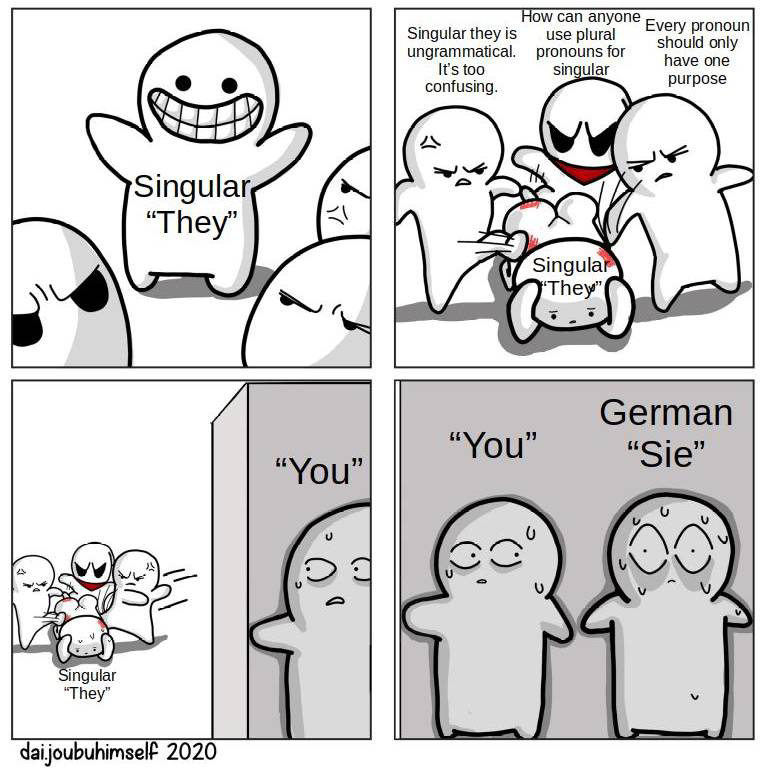this post was submitted on 24 Jul 2023
602 points (97.6% liked)
196
16915 readers
1281 users here now
Be sure to follow the rule before you head out.
Rule: You must post before you leave.
If you have any questions, feel free to contact us on our matrix channel.
founded 2 years ago
MODERATORS
you are viewing a single comment's thread
view the rest of the comments
view the rest of the comments

If you are curious I wrote several paragraphs about German gendered language:
https://lemmy.blahaj.zone/comment/1382981
I find it interesting how gendered German is. In contrast, in my language the default for a word is gender neutral. you have to state the gender if you want to specify it, and you only do that if the gender is relevant e.g. "the driver handed me my change" would be "inabot sakin ng tsuper yung sukli ko", but if you said "inabot sakin ng babaeng tsuper yung sukli ko" which means "the female driver handed me my change" then that means the gender of the driver is of relevance to the conversation.
an exception I can think of is spanish loanwords like "tindero/tindera" which is more commonly used to refer to shopkeepers and vendors here. we also use "ate/kuya"(sister/brother) when we talk to strangers e.g. "kuya alam nyo po kung saan yung pinakamalapit na sakayan ng dyip?" meaning "excuse me sir, do you know where the nearest jeepney terminal is?".
overall, I find it interesting to look into languages with different ways of using things that seem complicated to me. really makes me think what "foreigners" might think is complicated in my language that I take for granted.
So in your language it is the same as in English? I'm happy English is relatively ungendered.